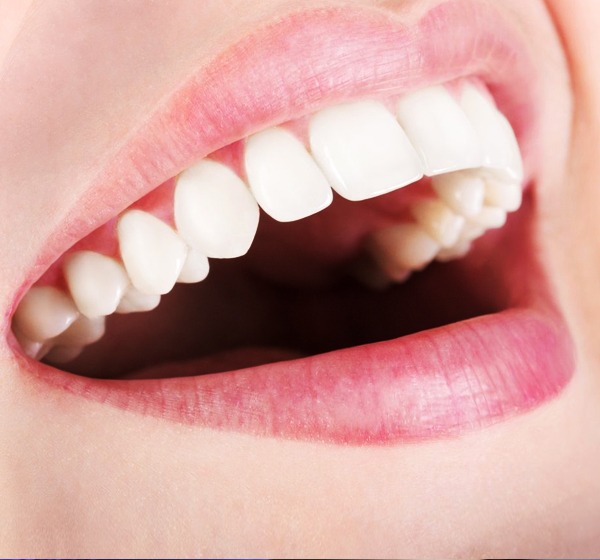How Long Do Dental Crowns Last?
Dental crowns are one of the most common restorative dental treatments available. They are used to restore a damaged or decayed tooth by covering it with a durable, tooth-shaped cap. While dental crowns provide excellent protection and functionality, patients often ask the question: How long do dental crowns last?
The lifespan of dental crowns is an important consideration before opting for treatment. In this blog, we’ll explore the factors that affect the longevity of dental crowns, the different types of crowns available, and tips for extending their lifespan. At Longwood House Dental Care in Ilford, we provide high-quality dental crowns that are designed to last and give you a confident, healthy smile.
What Are Dental Crowns?
Before diving into how long dental crowns last, it’s essential to understand what they are and why they are used. A dental crown is a custom-made cap that covers a damaged or decayed tooth, providing strength, protection, and an aesthetic appearance. Crowns are typically made from materials like porcelain, ceramic, metal, or zirconia, and they help restore the shape, size, and function of a weakened tooth.
Crowns are commonly used for:
- Tooth decay: When a cavity is too large to be filled with a simple filling.
- Fractured or cracked teeth: To protect the tooth and restore its functionality.
- Root canal treatments: After a root canal, a crown is often placed to protect the tooth.
- Cosmetic purposes: Crowns can be used to improve the appearance of a discolored or misshapen tooth.
While crowns are a popular and effective treatment, many patients are concerned about how long they will last and whether they will need to replace them in the future.
How Long Do Dental Crowns Last?
The lifespan of a dental crown depends on several factors, including the material used, the location of the crown, and your oral care habits. On average, dental crowns can last anywhere from 10 to 15 years with proper care.
Factors That Affect the Longevity of Dental Crowns
Material of the Crown
The material of the crown plays a significant role in how long it will last. Some materials are more durable than others, while some are more aesthetic but may wear down more quickly. Here are some common crown materials and their longevity:
- Porcelain Crowns: These crowns are highly aesthetic and blend seamlessly with your natural teeth. However, porcelain is not as durable as metal, and porcelain crowns may last 10 to 12 years on average, depending on the wear and tear.
- Metal Crowns: Made from materials like gold or alloy, metal crowns are the most durable. They can last up to 15 years or more. However, they are typically used for back teeth due to their appearance.
- Ceramic Crowns: Ceramic crowns are a durable option that offers a more natural look, making them ideal for front teeth. They generally last around 10 to 12 years.
- Zirconia Crowns: Zirconia crowns are one of the most durable and aesthetically pleasing options. They are highly resistant to wear and can last up to 15 years or longer with proper care.
Location of the Tooth
The location of the crown in your mouth can influence its lifespan. Back teeth (molars) are used for chewing and are subject to more pressure, which can cause crowns to wear down faster. For this reason, back teeth crowns may require a more durable material, such as metal or zirconia.
On the other hand, front teeth crowns are mainly used for cosmetic purposes, so the pressure on them is less. Porcelain or ceramic crowns are often preferred for front teeth because they offer a natural look.
Oral Care Habits
Your oral hygiene plays a crucial role in the longevity of your dental crown. If you practice good oral care—brushing at least twice a day, flossing daily, and using mouthwash—you can help extend the life of your crown. Avoiding hard foods, sticky candy, and chewing on ice can also prevent unnecessary wear and tear on your crown.
Additionally, teeth grinding (bruxism) can cause damage to both your natural teeth and crowns. If you have a habit of grinding your teeth, it’s essential to talk to your dentist about getting a mouthguard to protect your crown and other teeth.
Lifestyle Factors
Certain lifestyle habits can affect the lifespan of your dental crown. For example:
- Smoking: Smoking can stain porcelain crowns and lead to a buildup of plaque and tartar, which can affect the crown’s appearance and health.
- Diet: Eating a balanced diet and avoiding excessive acidic or sugary foods can help preserve both your natural teeth and crowns.
- Accidental Damage: Accidents like falling, trauma, or biting into hard objects can cause your crown to crack or become loose.
How to Prolong the Life of Your Dental Crown
While the average lifespan of dental crowns is typically 10 to 15 years, following a few simple guidelines can help extend their longevity:
- Practice Good Oral Hygiene: Brush your teeth at least twice a day with fluoride toothpaste and floss daily to remove plaque and debris from around your crown.
- Avoid Hard or Sticky Foods: Refrain from chewing on hard objects (like ice, pens, or hard candy) or sticky foods that can loosen or damage your crown.
- Wear a Mouthguard: If you grind your teeth at night, wear a mouthguard to protect your crown from damage caused by bruxism.
- Visit Your Dentist Regularly: Regular check-ups with your dentist in Ilford can help ensure that your crown is in good condition and that any issues are addressed promptly.
What Happens If Your Crown Needs to Be Replaced?
Dental crowns don’t last forever, and it’s possible that your crown may need to be replaced at some point. Signs that it’s time for a crown replacement include:
- Pain or Sensitivity: If you experience tooth pain or sensitivity after a crown has been placed, it may be a sign that the crown is no longer fitting properly.
- Visible Damage: If your crown is cracked, chipped, or damaged, it’s important to have it replaced to avoid further issues with your tooth.
- Crown Becoming Loose: Over time, the cement holding the crown in place may weaken, causing the crown to become loose or fall out.
If you think your crown needs replacing, consult with your dentist in Ilford to determine the best course of action.
Why Choose Longwood House Dental Care in Ilford?
At Longwood House Dental Care, we provide high-quality dental crowns that are designed to last. Our experienced dentists in Ilford use the latest technology and materials to ensure that your dental crown fits perfectly and functions optimally. We offer a range of materials to suit your needs and budget, from durable metal crowns to aesthetic porcelain crowns.
Frequently Asked Questions (FAQs)
How long do dental crowns last?
Dental crowns typically last between 10 to 15 years with proper care. The lifespan can vary depending on the material used and your oral hygiene habits.
What factors affect the lifespan of dental crowns?
The material of the crown, location of the crown, oral hygiene, and lifestyle habits (like teeth grinding) all affect how long a crown lasts.
Can I eat normally after getting a dental crown?
Yes, after your dental crown has been placed, you can eat normally, but avoid hard or sticky foods for the first 24 hours.
Can dental crowns be replaced?
Yes, if a crown becomes damaged or worn down, it can be replaced by your dentist to restore the tooth’s function and appearance.



